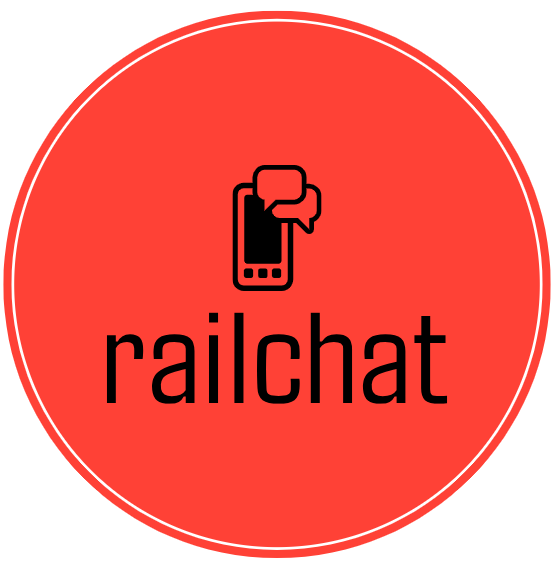The railroad sector is a vital part of the global economy, offering a wide range of career opportunities. From the operation of trains to the management of logistics, the railroad industry requires a diverse set of skills and expertise. With the growth of the sector, especially as automation and sustainability initiatives continue to advance, new career paths are emerging. Whether you’re interested in hands-on roles, engineering, or management positions, the railroad industry offers numerous opportunities for career advancement.

Operating and Driving Trains
One of the most well-known career paths in the railroad industry is that of a train operator or engineer. Train operators are responsible for safely driving trains along scheduled routes, ensuring passengers or cargo are transported efficiently. This role requires a deep understanding of train systems, signals, and safety procedures.
Train engineers must undergo rigorous training and obtain certifications to operate specific types of trains. The training involves both classroom learning and hands-on experience. With the ongoing demand for skilled operators, this field offers stability and growth potential for individuals interested in working directly with trains.
Maintenance and Repair Jobs
The maintenance and repair of trains and railroad infrastructure is another critical area of employment within the sector. Railroads rely on skilled workers to ensure their trains and tracks are in optimal condition. This includes positions like train mechanics, track workers, and electricians who maintain the locomotives and rail networks.
Track workers focus on maintaining the condition of the rail tracks, ensuring they are clear of debris and properly aligned. Mechanics and electricians are responsible for maintaining and repairing trains, ensuring the machinery runs smoothly. These positions often require technical training and expertise, and the demand for skilled maintenance workers is expected to grow as more rail companies invest in new technology and expand their operations.
Signal and Communication Specialists
Signal and communication specialists play a crucial role in ensuring the safety and efficiency of rail operations. These professionals are responsible for maintaining and upgrading signalling systems, which help trains communicate with each other and control train movements. This role involves both technical knowledge of electronic systems and an understanding of railroad operations.
Signal technicians work with complex signalling systems that are critical to preventing accidents and ensuring smooth train schedules. As railroads adopt more automated systems, the demand for professionals with expertise in signal technology and communications continues to grow.
Logistics and Supply Chain Management
Railroads play a pivotal role in the transportation of goods, and professionals in logistics and supply chain management are essential to keeping operations running smoothly. These individuals oversee the movement of cargo, managing inventory, scheduling, and coordinating shipments across various locations.
Logistics coordinators in the railroad sector work to optimize routes, ensure timely deliveries, and manage the loading and unloading of cargo. With the expansion of rail systems and the increasing importance of sustainable and efficient logistics, careers in this field offer long-term growth and development.
Engineering and Technology Roles
The railroad industry requires skilled engineers to design, maintain, and improve rail infrastructure and train technology. Engineering roles in the railroad sector can range from civil engineers who work on track construction and maintenance, to electrical and mechanical engineers who focus on train operations and equipment.
Additionally, the rise of automation in the railroad sector has created new career opportunities in fields like robotics, AI, and data analysis. Engineers are now tasked with developing and implementing new technologies that improve operational efficiency, safety, and environmental sustainability. These roles require a strong technical background and a passion for innovation.
Management and Administrative Careers
Beyond technical roles, the railroad industry also offers various management and administrative positions. These positions include everything from operational managers to human resources professionals, financial analysts, and marketing specialists. These roles are crucial to the day-to-day operations of railroad companies and involve overseeing teams, managing budgets, and ensuring strategic goals are met.
Management positions offer opportunities for individuals with leadership skills to advance their careers within the railroad industry. These roles typically require experience in business operations or related fields, and there is potential for upward mobility as the industry continues to grow and modernize.
The Future of Career Opportunities in the Railroad Sector
As technology continues to advance, career opportunities in the railroad sector will expand. The industry’s growing focus on automation, sustainability, and innovation will create new roles that didn’t exist before. For example, positions focused on data analysis, cybersecurity, and environmental impact reduction are becoming increasingly important.
Furthermore, as global demand for rail transportation rises, especially in the context of sustainable and eco-friendly practices, the railroad industry will continue to offer stable and rewarding career opportunities for years to come.
Conclusion
In conclusion, the railroad industry offers a wide range of career opportunities for individuals with diverse skills and interests. From train operations and maintenance to engineering, logistics, and management, the sector provides roles that are essential to the economy and society. As the industry evolves with new technologies and sustainable practices, the demand for skilled workers will continue to rise, making the railroad sector an attractive career path for those looking for stability, growth, and innovation.



